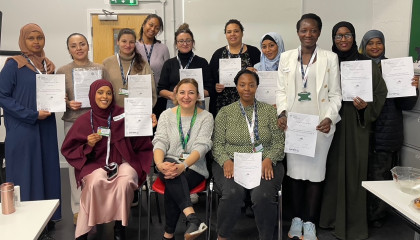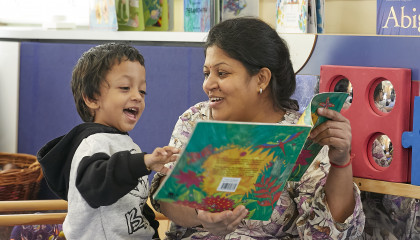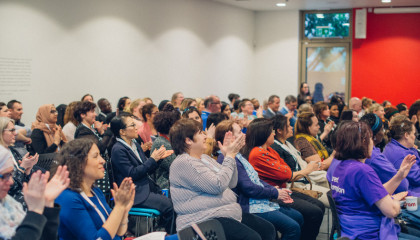You are here: Social mobility in the early years: a missed opportunity?
breadcrumb navigation:
- Home /
- Social mobility in the early years: a missed opportunity?

Social mobility in the early years: a missed opportunity?
A new paper from the Sutton Trust, released last week, suggests that recent progress in improving life chances for more deprived children in the early years are in danger of stalling. Poor children are more likely to become poor adults if we don't work to improve social mobility, and some of the best opportunities to do this are when children are very young.
Kitty Stewart and Jane Waldfogel are experts in early years policy: when they raise concerns, we should listen. They show that the real reduction in family incomes since 2010 mean that more children will grow up in poverty, and it is difficult to see how even well-designed policies to support parenting and ensure access to high quality early education can have the impact we want against such a backdrop. At the same time, local support for parents through children’s centres and libraries have decreased, and there has been little national support through parenting programmes.
We have known for over ten years that high quality early education has huge potential to improve outcomes for children – wherever their families are starting from. In response to this evidence, the government offers two year olds from more disadvantaged families, who have disabilities, or who have been in care, free early education for fifteen hours a week. Take up among eligible families is about 70 per cent, so there is further to go: our Parent Champions programme works with local community volunteers to increase uptake in over 40 deprived communities across the country.
Conversely, the authors point out that the more recent introduction of thirty hours of free childcare for working parents – while welcome to many families – is unlikely to do much to improve social mobility. In general, it’s offered to families who are already comparatively well off and might well be using childcare anyway. Alongside the free entitlements, tax free childcare and the benefits system pay a proportion of parents’ childcare costs. The problem is that these don’t give Government or local authorities much opportunity to improve quality within settings: they simply pay for places parents have selected, and in practice local shortages of provision mean parents may not have very much choice.
We need a system that means all children can access childcare which will help them learn and develop, and that no parent has to pay to go to work because of high childcare costs. In the long term, this means the childcare funding system needs to both simpler and more generous. In the short term, Government should hear the Sutton Trust’s and Family and Childcare Trust’s calls to equalise the Pupil Premium for early years with the one for schools, so settings can give meaningful extra help to children who have had a more difficult start in life, and to improve skills, pay and conditions for the crucial early years workforce.

More from our blog
Parent Champions Conference and Awards 2025
What a fantastic two days at the Parent Champions Conference and Awards 2025!
The Exciting Story Of The First Year Of Books Together
The Exciting Story of Books Together
The NAFIS Conference and Awards 2024
Read about the NAFIS Conference and Awards 2024
Sign up to our newsletter
Get the latest news, research and resources from Coram Family and Childcare



